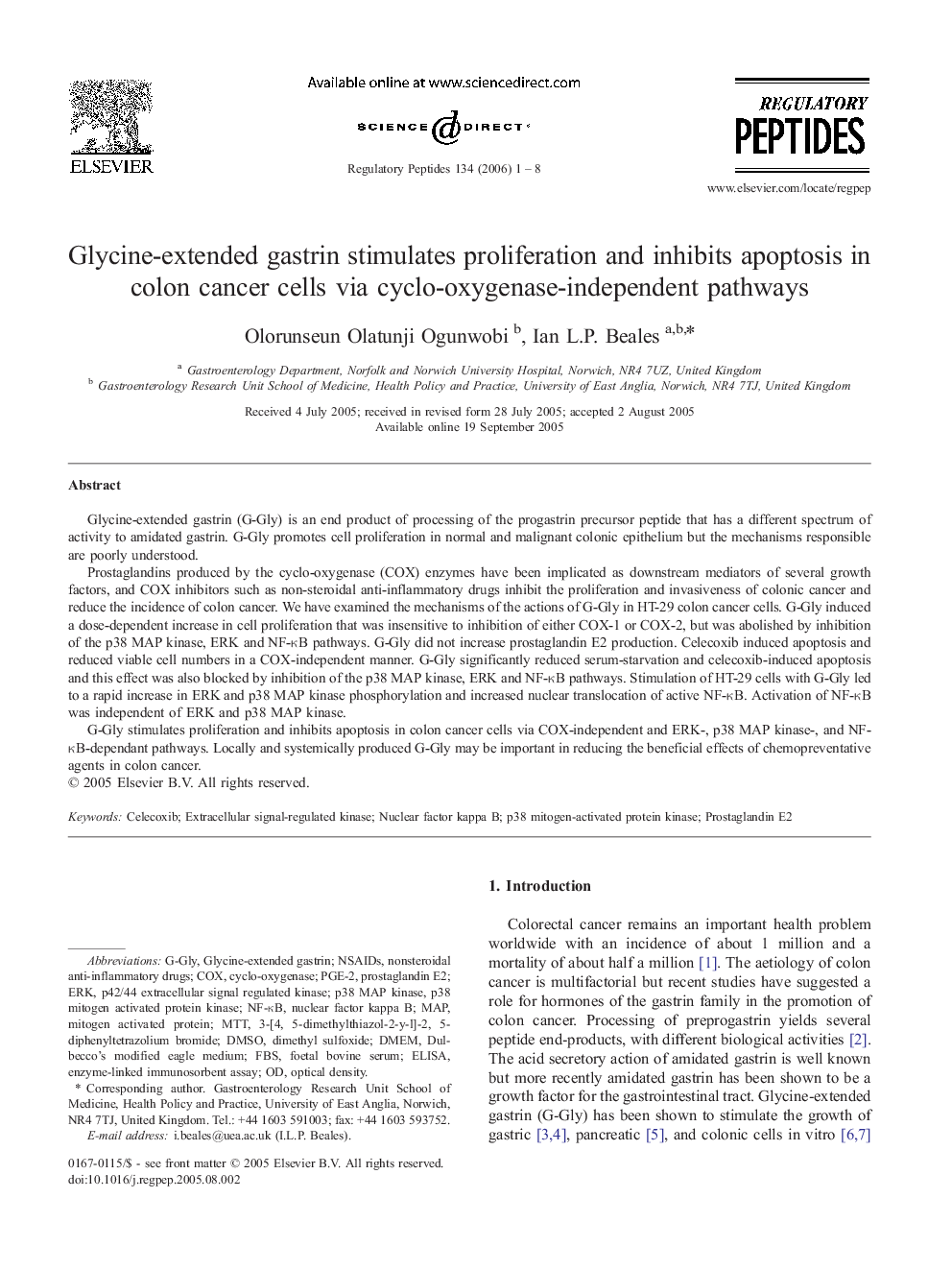| Article ID | Journal | Published Year | Pages | File Type |
|---|---|---|---|---|
| 2023561 | Regulatory Peptides | 2006 | 8 Pages |
Glycine-extended gastrin (G-Gly) is an end product of processing of the progastrin precursor peptide that has a different spectrum of activity to amidated gastrin. G-Gly promotes cell proliferation in normal and malignant colonic epithelium but the mechanisms responsible are poorly understood.Prostaglandins produced by the cyclo-oxygenase (COX) enzymes have been implicated as downstream mediators of several growth factors, and COX inhibitors such as non-steroidal anti-inflammatory drugs inhibit the proliferation and invasiveness of colonic cancer and reduce the incidence of colon cancer. We have examined the mechanisms of the actions of G-Gly in HT-29 colon cancer cells. G-Gly induced a dose-dependent increase in cell proliferation that was insensitive to inhibition of either COX-1 or COX-2, but was abolished by inhibition of the p38 MAP kinase, ERK and NF-κB pathways. G-Gly did not increase prostaglandin E2 production. Celecoxib induced apoptosis and reduced viable cell numbers in a COX-independent manner. G-Gly significantly reduced serum-starvation and celecoxib-induced apoptosis and this effect was also blocked by inhibition of the p38 MAP kinase, ERK and NF-κB pathways. Stimulation of HT-29 cells with G-Gly led to a rapid increase in ERK and p38 MAP kinase phosphorylation and increased nuclear translocation of active NF-κB. Activation of NF-κB was independent of ERK and p38 MAP kinase.G-Gly stimulates proliferation and inhibits apoptosis in colon cancer cells via COX-independent and ERK-, p38 MAP kinase-, and NF-κB-dependant pathways. Locally and systemically produced G-Gly may be important in reducing the beneficial effects of chemopreventative agents in colon cancer.
